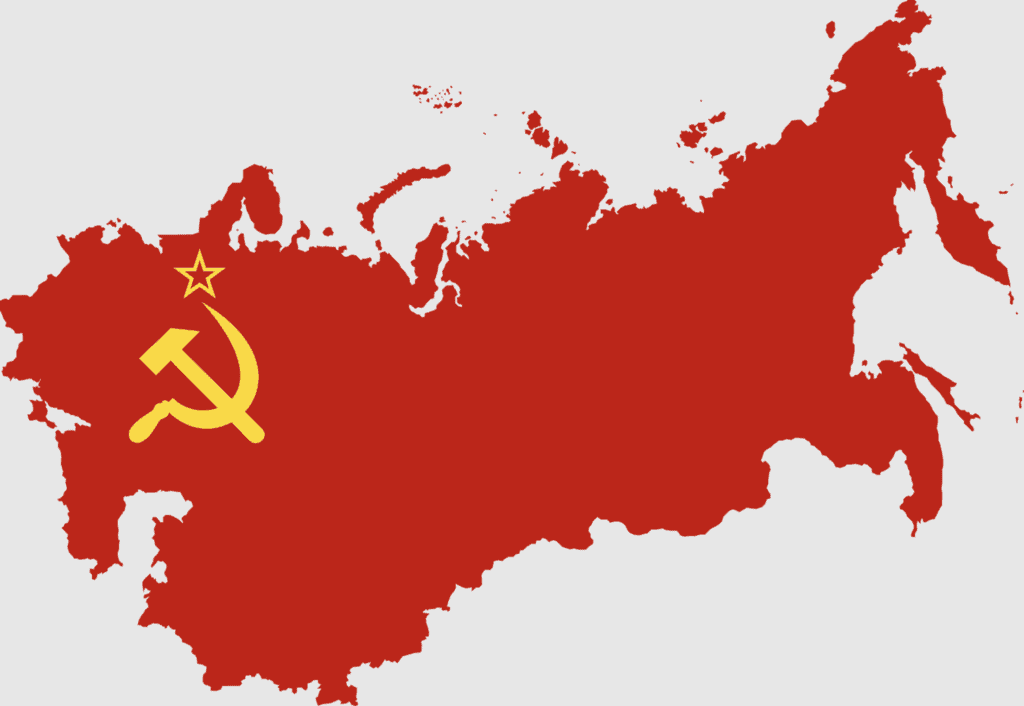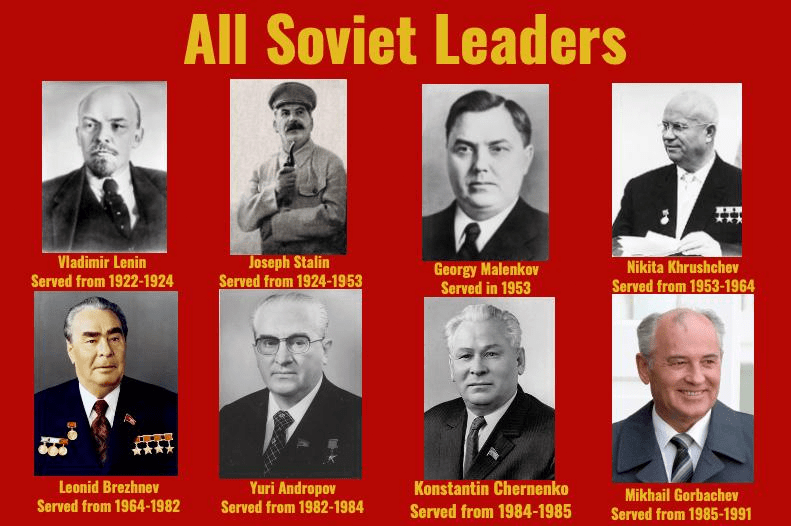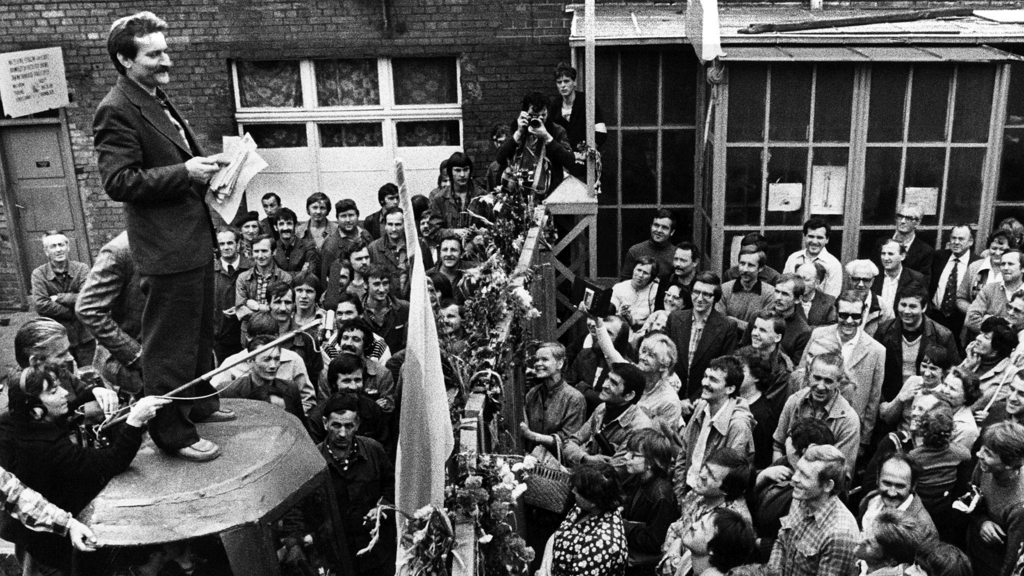Humanities/Arts Exam > Humanities/Arts Notes > Political Science Class 12 > Chapter Notes: The End of Bipolarity
The End of Bipolarity Class 12 Political Science
What was the Soviet System?
- The Union of Soviet Socialist Republics (USSR) came into being after the socialist revolution in Russia in 1917.
- The revolution was inspired by the ideals of socialism, as opposed to capitalism, and the need for an egalitarian society.
- The Soviet political system centered around the communist party, and no other political party or opposition was allowed.
- The economy was planned and controlled by the state.
- After the Second World War, the eastern European countries liberated by the Soviet army came under the control of the USSR.
- This group of countries was called the Second World or the ‘socialist bloc’ held together by the Warsaw Pact, a military alliance.
- After the Second World War, while the Soviet economy had strengths, it also had significant weaknesses compared to many Western economies.
- The Soviet state ensured a minimum standard of living for all citizens.
- The government-subsidized necessities including health, education, childcare, and other welfare schemes.
- There was no unemployment.
- The Soviet system became very bureaucratic and authoritarian, making life very difficult for its citizens.
- In the arms race, the Soviet Union managed to match the US from time to time.
- However, the Soviet Union lagged behind the West in technology, infrastructure, and in fulfilling the political or economic aspirations of citizens.
- The Soviet economy was faltering in the late 1970s and became stagnant.

Question for Chapter Notes: The End of BipolarityTry yourself: What was the main political party in the Soviet System?View Solution
Gorbachev and the Disintegration
- Mikhail Gorbachev, who became General Secretary of the Communist Party of the Soviet Union in 1985, started reforming the system.
- He decided to normalize relations with the West and democratize and reform the Soviet Union but he did not anticipate the defects of the system.
- The people in the East European countries which were part of the Soviet bloc started to protest against their own governments and Soviet control.
- Gorbachev did not intervene when the disturbances occurred, and the communist regimes collapsed one after another.
- The democratic reforms were opposed by leaders within the Communist Party.
- A coup took place in 1991 that was encouraged by Communist Party hardliners.
- The people did not want the old-style rule of the Communist Party and wanted freedom.
- In December 1991, under the leadership of Yeltsin, Russia, Ukraine, and Belarus, three major republics of the USSR, declared that the Soviet Union was disbanded.
- Capitalism and democracy were adopted as the bases for the post-Soviet republics.
- Russia was now accepted as the successor state of the Soviet Union.
- It inherited the Soviet seat in the UN Security Council.
- Russia accepted all the international treaties and commitments of the Soviet Union.

Why did the Soviet Union disintegrate?
- The internal weaknesses of Soviet political and economic institutions failed to meet the aspirations of the people.
- The Soviet economy used much of its resources in maintaining a nuclear and military arsenal.
- The development of satellite states in Eastern Europe and the Central Asian Republics contributed to economic stagnation.
- Severe consumer shortages arose over many years, leading to doubts about the system in the Soviet society.
- The Communist Party ruled the Soviet Union for over 70 years without accountability to the people.
- Ordinary people were alienated by slow administration and rampant corruption.
- The system's inability to correct its mistakes fostered discontent.
- There was an unwillingness to allow more openness in government.
- Centralization of authority in a vast land contributed to societal frustrations.
- A section of society was unhappy with Gorbachev's reforms.
- Reforms were believed to be introduced at a very slow pace.
- The rise of nationalism was a significant issue during this period.
Consequences of Disintegration
- End of Cold War confrontations.
- Ideological dispute over whether the socialist system was over-changed.
- Power relations in world politics shifted, altering the influence of ideas and institutions.
- The US became the sole superpower.
- Backed by the power and prestige of the US, the capitalist economy emerged as the dominant economic system internationally.
- Institutions like the World Bank and the International Monetary Fund became influential advisors.
- The notion of liberal democracy emerged as the best way to organize political life.
- The end of the Soviet bloc led to the emergence of new countries with independent aspirations.
- Some countries, particularly the Baltic and East European states, sought to join the European Union and become part of NATO.
- Central Asian countries aimed to leverage their geographical location to maintain ties with Russia and establish connections with the West, the US, China, and others.
Question for Chapter Notes: The End of BipolarityTry yourself: What was one of the main reasons for the disintegration of the Soviet Union?View Solution
Shock therapy in post-communist regimes
- Shock Therapy is the model of transition in Russia, Central Asia, and East Europe.
- The transition involved moving from an authoritarian socialist system to a democratic capitalist system.
- World Bank and IMF influenced this transition.
- Shock therapy varied in intensity and speed among former second-world countries.
- The direction and features of Shock Therapy were quite similar across countries.
- Each country was required to make a total shift to a capitalist economy.
- This shift meant rooting out completely any structures that evolved during the Soviet period.
- The transition also involved a break up of existing trade alliances among Soviet bloc countries.

Consequences of Shock Therapy
- The shock therapy brought ruin to the economies and disaster to the people of the entire region.
- The value of the ruble, the Russian currency, declined dramatically and the rate of inflation was so high that people lost all their savings.
- The old system of social welfare was systematically destroyed. The withdrawal of government subsidies pushed large sections of the people into poverty.
- The construction of democratic institutions was not given the same attention and priority as the demands of economic transformation.
Tensions and Conflicts
- Most of the former Soviet Republics are prone to conflicts, and many have had civil wars and insurgencies.
- In Russia, two republics, Chechnya and Dagestan, have had violent secessionist movements.
- Tajikistan witnessed a civil war for almost 10 years till 2001. The region had many sectarian conflicts. Central Asia too become a zone of competition between outside powers and oil companies.
- In eastern Europe, Czechoslovakia was divided into two, the Czechs and the Slovaks thus forming independent countries.
- Yugoslavia broke apart with several provinces like Croatia, Slovenia, and Bosnia and Herzegovina declaring independence.
India and Post-Communist Countries
- India has maintained good relations with all the post-communist countries. India’s relations with Russia are an important aspect of India’s foreign policy as both the countries share a vision of a multipolar world order.
- More than 80 bilateral agreements have been signed between India and Russia as part of the Indo-Russian Strategic Agreement of 2001.
- India benefitted from Russia over issues like Kashmir, energy supplies, access to Central Asia, and balancing its relations with China.
- Russia benefitted from this relationship because India is the second largest arms market for Russia.Question for Chapter Notes: The End of BipolarityTry yourself:What were some of the consequences of shock therapy in post-communist regimes?View Solution
Remember: EduRev Tips
- March 1985: Mikhail Gorbachev was elected as the General Secretary of the Communist Party of the Soviet Union; appointed Boris Yeltsin as the head of the Communist Party in Moscow; initiated a series of reforms in the Soviet Union
- 1988: The independence movement begins in Lithuania; later spreads to Estonia and Latvia
- October 1989: Soviet Union declares that the Warsaw Pact members are free to decide their futures; Berlin Wall falls in November
- February 1990: Gorbachev strips the Soviet Communist Party of its 72-year-long monopoly on power by calling on the Soviet parliament (Duma) to permit multi-party politics
- March 1990: Lithuania becomes the first of the 15 Soviet republics to declare its independence
- June 1990: Russian parliament declares its independence from the Soviet Union
- June 1991: Yeltsin, no longer in the Communist Party, becomes the President of Russia
- August 1991: The Communist Party hardliners stage an abortive coup against Gorbachev
- September 1991: Three Baltic republics of Estonia, Latvia, and Lithuania become UN members (later join NATO in March 2004)
- December 1991: Russia, Belarus, and Ukraine decide to annul the 1922 Treaty on the Creation of the USSR and establish the Commonwealth of Independent States (CIS); Armenia, Azerbaijan, Moldova, Kazakhstan, Kyrgyzstan, Tajikistan, Turkmenistan, and Uzbekistan join the CIS (Georgia joins later in 1993); Russia takes over the USSR seat in the United Nations
- 25 December 1991: Gorbachev resigns as the President of the Soviet Union; the end of the Soviet UnionQuestion for Chapter Notes: The End of BipolarityTry yourself:Which event led to the establishment of the Commonwealth of Independent States (CIS) in December 1991?View Solution
The document The End of Bipolarity Class 12 Political Science is a part of the Humanities/Arts Course Political Science Class 12.
All you need of Humanities/Arts at this link: Humanities/Arts
|
36 videos|436 docs|77 tests
|
FAQs on The End of Bipolarity Class 12 Political Science
| 1. What were the main features of the Soviet System? |  |
Ans. The Soviet System was characterized by a centrally planned economy, state ownership of the means of production, and a single-party political system dominated by the Communist Party. It emphasized collective farming, industrialization through Five-Year Plans, and strict government control over all aspects of life, including media, education, and political expression.
| 2. What role did Gorbachev play in the disintegration of the Soviet Union? |  |
Ans. Mikhail Gorbachev played a crucial role in the disintegration of the Soviet Union through his policies of glasnost (openness) and perestroika (restructuring). These reforms aimed to modernize the economy and increase transparency in governance but inadvertently weakened the Communist Party's control, leading to increased demands for independence among various Soviet republics and ultimately contributing to the collapse of the Soviet Union in 1991.
| 3. What were the primary reasons behind the disintegration of the Soviet Union? |  |
Ans. The primary reasons for the disintegration of the Soviet Union included economic stagnation, political corruption, and rising nationalism among the republics. Gorbachev's reforms failed to revive the economy, leading to public dissatisfaction. Additionally, the loosening of central control allowed nationalist movements to gain momentum, culminating in the independence of several republics.
| 4. What is shock therapy, and how was it implemented in post-communist regimes? |  |
Ans. Shock therapy refers to a rapid transition from a centrally planned economy to a market-oriented economy, often involving immediate privatization, deregulation, and stabilization measures. In post-communist regimes, such as Russia and other Eastern European countries, shock therapy was implemented to quickly reform the economy, but it often resulted in severe social and economic upheaval, including high inflation and unemployment.
| 5. What were the consequences of shock therapy in post-communist countries? |  |
Ans. The consequences of shock therapy in post-communist countries included significant economic hardship, increased inequality, and social unrest. While some countries experienced eventual economic growth and integration into global markets, others faced prolonged economic difficulties, political instability, and a decline in living standards for many citizens, leading to widespread discontent and challenges to governance.
Related Searches






















